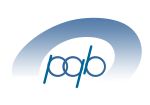T 25v16D - Free demo course - E-Learning ISO 37001 anti-bribery readiness management system version 2016
Free demo course - E-Learning (online course) - Implementation, maintenance, certification and improvement of your anti-bribery management system ISO 37001 version 2016
scroll right
|
scroll right
|
||||

|
|
|||
|
See the online game G 25 IZOGOOD® 37001 Decrypt ISO 37001 while having See the online course T 45v16 ISO 37001 Internal audit See the online training package T 85v16 ISO 37001 readiness and internal audit |
||||
scroll right
| Result of the training satisfaction survey : | 82.9% | Last update on January 17, 2025 |
Description of the online course for your anti-bribery management system ISO 37001: 2016
Discover the ISO 37001 standard version 2016 and
- its content
- its principles
- its requirements
- the stakes
Get used to
- anti-bribery approach
- anti-bribery management system (ABMS)
- process approach
- risk-based thinking
- anti-bribery terminology
- anti-bribery documents
- readiness documents
- internal audit documents
- continual improvement
The important and fundamental elements of an anti-bribery management system
- anti-bribery approach (history, benefits, PDCA cycle)
- process approach (definitions, process types, mapping)
- context of the company (stakeholder requirements)
- leadership of top management (commitments, responsibilities)
- planning of the ABMS (risks, actions, objectives)
- operation (due diligence, controls, commitments, gifts, raising concerns, investigating)
- performance evaluation (monitoring, measure, analysis, internal audits, management review)
- improvement (nonconformities, corrective actions, continual improvement)
The menu of the course
- Presentation
- MCT (multiple-choice test) Beginning (10 questions)
- 1 Anti-bribery approach
- 1.1 History
- 1.2 Benefits
- 1.3 Steps
- 2 Standards, definitions, books
- 2.1 Standards
- 2.2 Definitions
- 2.3 Books
- MCT Anti-bribery (7 questions)
- 3 Process approach
- 3.1 Process
- 3.1.1 Management process
- 3.1.2 Realization process
- 3.1.3 Support process
- 3.2 Process mapping
- 3.3 Process approach
- 3.1 Process
- MCT Process approach (7 questions)
- 4 Context
- 4.1 Issues
- 4.2 Stakeholders
- 4.3 Scope
- 4.4 ABMS
- 4.5 Bribery risks
- Case Interested parties
- Case Priority tasks
- Case New risk
- Case Risk treatment
- Case Risk register
- Summary of clause 4
- MCT Context (8 questions)
- 5 Leadership
- 5.1 Leadership and commitment
- 5.2 Policy
- 5.3 Roles
- Case Delegate work
- Summary of clause 5
- MCT Leadership (7 questions)
- 6 Planning
- 6.1 Actions
- 6.2 Objectives
- Case Root cause
- Summary of clause 6
- MCT Planning (6 questions)
- 7 Support
- 7.1 Resources
- 7.2 Competence
- 7.3 Awareness
- 7.4 Communication
- 7.5 Documentation
- Case Communication
- Summary of clause 7
- MCT Support (7 questions)
- 8 Operation
- 8.1 Planning
- 8.2 Due diligence
- 8.3 Financial controls
- 8.4 Non-financial controls
- 8.5 Anti-bribery controls
- 8.6 Anti-bribery commitments
- 8.7 Gifts and similar benefits
- 8.8 Inadequacy of controls
- 8.9 Raising concerns
- 8.10 Investigating
- Case Customer invitationDesign review
- Case Facilitation payment
- Case Contract and consideration
- Case Supplier selection
- Summary of clause 8
- MCT Operation (8 questions)
- 9 Performance
- 9.1 Inspection
- 9.2 Internal audit
- 9.3 Management review
- 9.4 Function review
- Case Audit readiness
- Case Audit program
- Case Auditor question
- Case Audit report
- Case Management review
- Summary of clause 9
- MCT Performance (7 questions)
- 10 Improvement
- 10.1 Nonconformity
- 10.2 Continual improvement
- Case Kaizen & problem
- Case Nonconformities
- Summary of clause 10
- MCT Improvement (6 questions)
- MCT End (20 questions)


 1. The first edition of the ISO 37001 standard appeared in:
1. The first edition of the ISO 37001 standard appeared in:.png)

